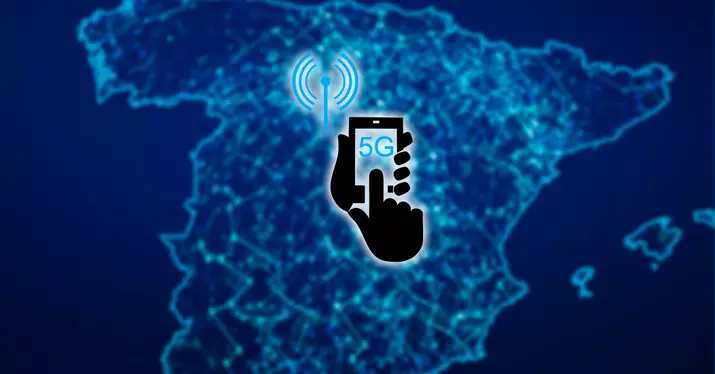
Last June, the UNICO-5G Plan was convened, which aimed to strengthen mobile networks in rural areas where there is no 4G mobile coverage with a minimum service of 10 Mbps currently with aid of 150 million euros intended to make it easier to install 5G mobile networks in these remote areas.
However, this plan will not go ahead for the time being because the deadline for submitting offers to carry out this reinforcement of the infrastructure has closed and the tender has been declared void.
No valid UNICO-5G plan proposals
According to the Expansión newspaper, there have been no valid proposals because none could meet the minimum requirements reflected in the call. If any were submitted, it would be only partial, so the plan remains up in the air without awarding.

The main problem is that the aid was intended, among other objectives of infrastructure modernizationto the deployment of the set of passive infrastructures necessary for the provision of mobile communications services in the areas in which it has been identified that they do not meet the minimum requirements.
The passive infrastructures are physical infrastructures to support mobile communications networks, such as towers, masts or poles, conduits, energy supply systems or connection networks to public energy networks or infrastructure protection elements and systems. Companies such as Cellnex, American Tower, Vantage and Totem would enter this business.
However, the plan does not include subsidies for companies that would need to integrate the radio equipment that makes telecommunications possible and that operators such as Movistar, Vodafone or Orange-MásMóvil should install. If these operators do not receive incentives to install their equipment, it is difficult for passive network companies to receive subsidies so that their towers are not used and, even so, they have to take care of maintenance.
unaffordable requirements
As if that were not enough, this vicious circle in which there is money for the house, but not for the furniturethe call itself included the essential requirement that each tower that was proposed to be built carried an irrevocable commitment from a telecom that the radio equipment to provide mobile communications service would be installed there.

In this way, although some companies such as Cellnex, American Tower, Vantage and Totem would like to take part in this UNICO-5G Plan, would need a hand operator to be valid, as required by Brusselswho validates the management of European funds.
The Government also incorporated other unfeasible requirements, such as the requirement to cover 10% of the roads of the areas to which the plan is intended, the need to create consortiums or joint ventures between telecommunications tower companies or require towers that admit at least four operators.
The program will have to return to Brussels and explain where it has failed to get it up and running again, which will cause a delay until 2023 at least.












